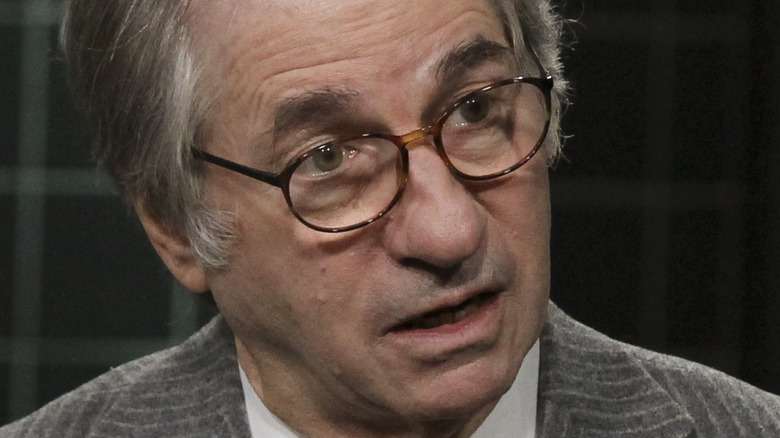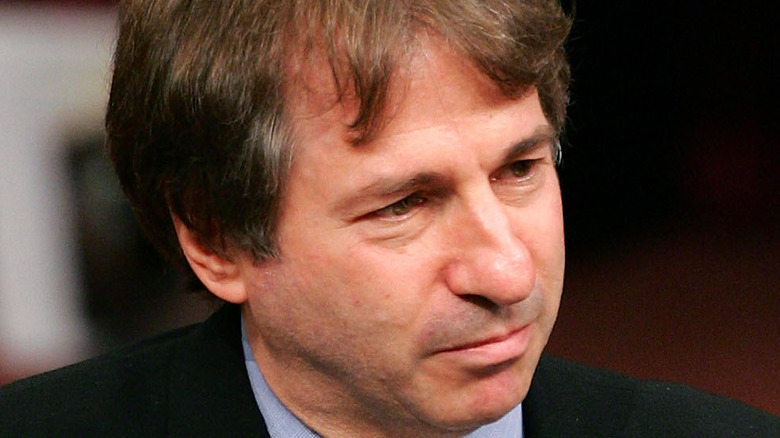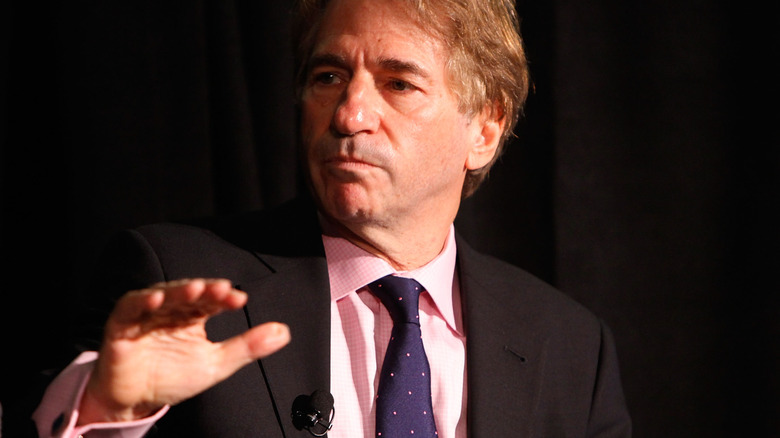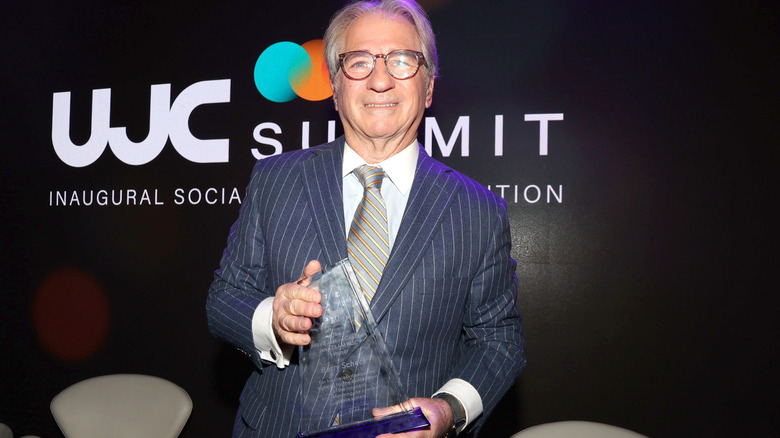What Happened To Barry Scheck From The OJ Simpson Case?
Correction 12/9/2022: A previous version of this article stated that Barry Scheck grew up in poverty. Scheck's father was actually the one who grew up impoverished, going on to serve as a successful music manager and raise the family in a middle class environment.
Barry Scheck is an American lawyer most famous for his involvement in the 1995 O.J. Simpson trial as well as pioneering work with the Innocence Project –- a non-profit that advocates for DNA evidence to exonerate the accused and convicted. The New York native stood out among Simpson's "Dream Team" — which also included attorneys like F. Lee Bailey and Robert Shapiro — for his more disheveled appearance, strong accent, and aggressive questioning style, according to Britannica. Scheck's performance in the case resulted in the legal phrase "To Scheck" –- aka, to dramatically challenge a witness (via the University of Missouri).
The infamous case revolved around the murders of Simpson's ex-wife, Nicole Brown Simpson, and her friend Ronald Goldman. The two were found stabbed to death outside their Los Angeles home on June 12, 1994. Simpson pleaded not guilty and soon a media extravaganza ensued. White Americans largely believed in O.J. Simpson's guilt, while African Americans saw his acquittal as a victory over a racially biased legal system (via Britannica). Scheck had a history of involvement in the civil rights movement and other forms of activism (via the University of California Television). His abundant experience coupled with his dramatic delivery made him a volatile force in the legal arena.
Barry Scheck's Early Life and Legal Career
Barry Scheck was born to a Jewish family in Queens, New York. His father, George, worked his way out of poverty to a career as a manager for entertainers. According to the American Academy of Achievement, because of his father's ties to representing Black Americans in the entertainment industry, Barry became engrossed in social justice issues including the anti-war and civil rights movements of the '60s and '70s. In his teens, Barry attended Yale University to study economic history and city planning, thereafter pursuing law at the University of California, Berkeley.
As a legal scholar, Barry taught at the School of Law at Yeshiva University. In 1985, his career took shape when he defended a man named Marion Coakley who was convicted of rape and robbery. Through fingerprint and blood evidence, Scheck proved that Coakley was not guilty of the crimes of which he was accused. In 1992 he co-founded the Innocence Project (per NSB Civil Rights). At its start, the non-profit organization resulted in the exoneration of dozens of wrongly convicted individuals. Since then, the project has exonerated over nearly 400 prisoners, according to the Innocence Project.
The O.J. Simpson Case and Beyond
Barry Scheck's repute in the legal world led to his inclusion on O.J. Simpson's defense team. His expertise in the forensic application of DNA research was brought to the public eye when he cross-examined LAPD criminologist, Dennis Fung. Scheck helped the defense's theory that a vial of blood was tampered with in order to frame Simpson. Scheck did this by pointing to a window of time in which the vial was unaccounted for at the crime scene, according to Newsweek.
As of 2022, Scheck teaches law and is still active with the Innocence Project. In March 2021, he spoke before the United States House Judiciary Subcommittee on Crime, Terrorism, and Homeland Security. In his testimony, he encouraged Congress to adopt pre-trial methods for reducing wrongful convictions (viat the Innocence Project). Scheck was also honored in a speech by Gregg Popovich – head coach of NBA team the San Antonio Spurs — in July 2022 at Roc Nation, pertaining to Scheck's work with the Innocence Project. At a social justice summit hosted by Jay-Z, Scheck was given an award for his work in social justice, per TMZ.
Barry Scheck is still fighting for his cause
As of this publication, Barry Scheck serves on the board at the Benjamin N. Cardozo School of Law. According to NSB Civil Rights, he divides his time between the school and serving as a commissioner on New York's Forensic Science Review Board, a regulatory firm that develops standards for forensic laboratories located in New York State. Scheck was also president of the National Association of Criminal Defense Lawyers between 2004-2005. This is an organization that includes private criminal defense lawyers, public defenders, law professors, and judges that advocate for improving the criminal legal system.
Scheck also dabbled in television a few times to further his cause. In 2010 and 2013, he played himself on two episodes of "The Good Wife" (via IMDb). In 2020, he appeared several episodes of "The Innocence Files," where he also worked behind the camera as an executive consultant. The show was a docuseries that highlighted cases of wrongfully convicted people handled by the Innocence Project and other similar organizations.



